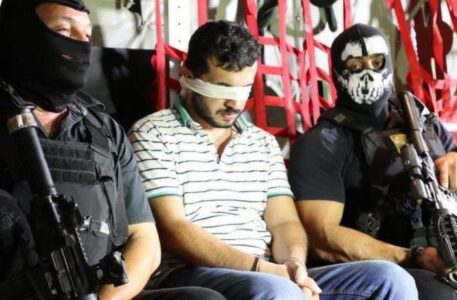
Islamic State leader mastermind of 2016 Karrada massacre is captured
Iraqi security forces have arrested a top militant of the Islamic State (IS, formerly Isis), considered the mastermind of the bloody 2016 Baghdad suicide bombing that killed some 300 people.
Prime Minister Mustafa al-Kadhimi broke the news reporting that Ghazwan al-Zawbaee was captured in recent days “in an intelligence operation” carried out “outside the country.” For the chief executive he is “the first culprit” of the atrocities in Karrada “and many others.”
The 2016 attack in the center of the capital was the bloodiest since the 2003 US invasion. A truck packed with explosives blew up near a crowd gathered in a shopping mall to celebrate the end of the daily fast during Ramadan, the holy month for Muslims.
Many of the victims were killed by a fire that broke out inside the building soon after the bomb went off. “Bringing to justice those who are complicit in the shedding of our people’s blood,” Kadhimi added, “is a national duty. The head of the government did not want to clarify where the arrest took place, but two intelligence officials behind anonymity explained to Ap that the operation was carried out by Iraqi forces “with the cooperation of a foreign state” and that he arrived in Iraq “three days ago.”
In addition to the Karrada massacre, Zawbaee is responsible for a series of bloody attacks in the capital and other provinces of the country between 2016 and 2017. These include the detonation of a car bomb also in Karrada on May 30, 2017, and the attack on a group of Shiite pilgrims intent on crossing a bridge in the Shawaka area, resulting in 26 casualties.
Last week, intelligence officials had arrested Islamic State’s head of finance, Sami Jasim al-Jaburi, in a similar operation outside its borders. Security sources told Reuters that Jasim, also considered deputy to jihadist leader Abu Bakr al-Baghdadi, was hiding in northwestern Syria and Turkish intelligence was instrumental in his capture.
In spite of the military defeat, still today there are isolated cells and lone wolves that continue the insurgency in Iraq, operating above all in the rural areas and carrying out rapid and sudden attacks against the Security Forces and infrastructures.
Source: Asia News





